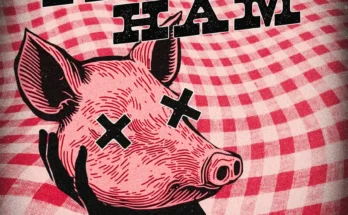In the world premiere of Knead,
award-winning Atlanta actor Mary Lynn Owen plays
both the author and the lone character.
::
“Knead,” a world premiere by and featuring Atlanta actor-playwright Mary Lynn Owen, runs Nov. 13-Dec. 9 at the Alliance Theatre’s Hertz Stage. Details, tickets HERE or at 404.733.5000.
::
MARY LYNN OWEN has played a brilliant academic dying of cancer, a teenage girl aging prematurely from a progeria-like disease and Tennessee Williams’ flawed and unyielding Southern mother Amanda Wingfield. Now she’s playing herself, essentially.
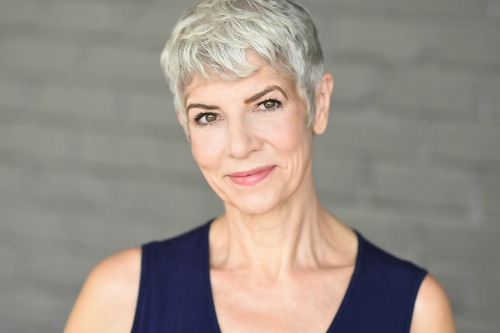
It may be her toughest role yet. In Knead, Owen is the only actor onstage and is called on to bake bread throughout. A stink-eye for the playwright? Hardly. Owen, a Suzi Bass Award-winning actor (Wit at Aurora Theatre, The Little Foxes at Marietta’s Theatre in the Square), wrote the drama, a world premiere and her first play ever.
Knead takes place in the wee hours. A woman bakes bread, determined that her mother’s incomprehensible recipe will finally work. But something is different this night. The ingredients of time and memory keep interfering.
Owen isn’t new to writing — just to playwriting. She’s written essays and poems for some time, she says, to help her understand events in her life. She has a novella that’s “lived in a drawer for at least a decade” but calls herself a mostly “closeted writer.”
Until now. And until actor-director David de Vries, a longtime friend, got in her head. He’d urged her again and again over the years to write a play, particularly about her family. Her response: always another essay.
“‘This is all fine,” he would tell her. “But when are you going to write a play?”
“After this had happened about three times,” Owen says, “three essays worth, and maybe a poem or two, he said, ‘I think you can maybe make a play out of all this.’”
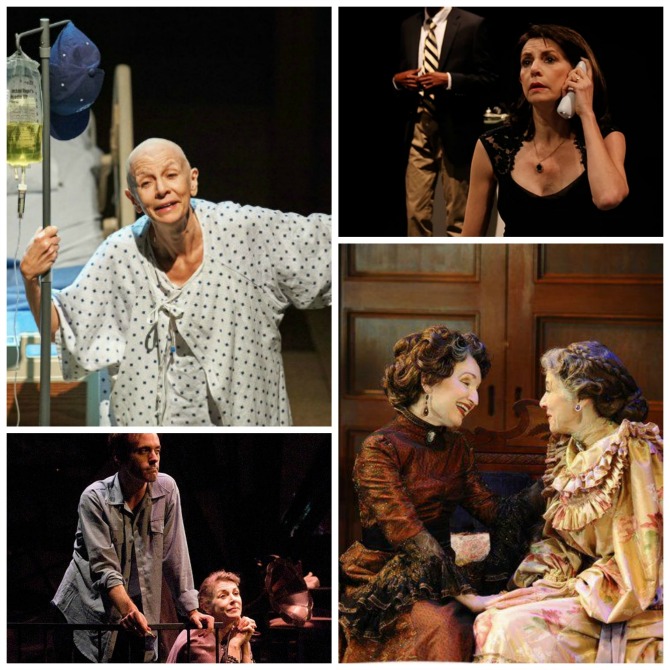
::
They began talking more earnestly. One day, as they chatted in her family room, he suggested she craft a piece around the process of baking bread. “Something clicked,” Owen says. “This is the blessing of longtime friends.”
De Vries had attended the 1995 funeral of Owen’s mother, you see. He heard Mary Lynn’s eulogy, in which she spoke about bread-baking and how it was a central theme for her family. “Chaotic as it often was,” Owen says, “bread brought us all to the table.”
So, Knead has been rising since the fall of 2015, when Owen, de Vries and composer Kendall Simpson applied to the Reiser Atlanta Artists Lab, an Alliance play-development program. Theirs was one of three projects chosen to go forward, an honor and challenge that comes with $10,000 in development support.
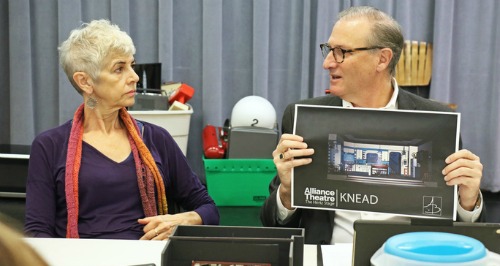
“The play has gone through several iterations,” Owen says. “At one time it was a cooking show gone wrong. Finding the immediacy of the play has been a firsthand education in ‘why plays are plays.’ You’d think I’d have picked this up by now!
“As an actor, I intuitively understand that plays take place in the moment. Essays, are reflective. They have a looking-backward quality, very different from the discoveries a character makes in the white-hot moment of a play. So I had to take apart the essays and the poems, and mess them up a bit, let them be moments of encounter. Moments when the character has no clue.”
Knead may be Owen’s first play, but she has some serious writing credentials. Knead was a semifinalist for the 2017 Eugene O’Neill Theater Center’s National Playwriting Conference, a storied program in Waterford, Conn. She’s had two residencies at the Cottages at Hedgebrook in Langley, Wash., and a writing residency at Rabun Gap’s Hambidge Center.
Her script, she says, has gone through a “gazillion trillion” rewrites. An earlier draft was titled Knead, Punch, Bake.” Her husband of 27 years, the actor Rob Cleveland, pointed out that the title bore an uncanny resemblance to a popular novel. “You know the one,” Owen says, “where a rich and beautiful woman, recently divorced, flounders in Italy for a while, having wild sex and eating gelato. Not quite my story.”
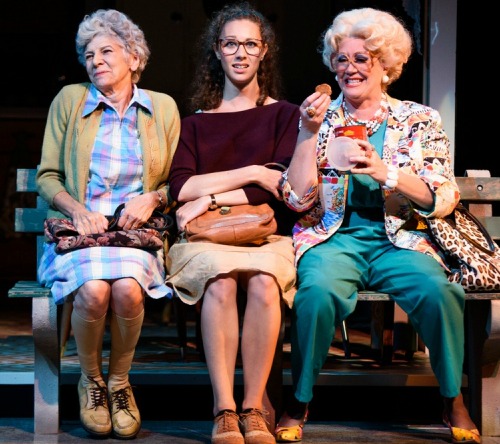
Her story has more grit, a lot more yeast and a nod to her Cuban heritage. Although autobiographical, Knead is an evening with a woman in her kitchen as unexpected events, present and past, unfold. “I think of the character as a character who happens to share my name and some of the significant events and people in my life,” Owen says. “But she has her own journey.”
As Knead was punched and proofed over the past 18 months, Owen made a lot of bread, found the play’s structure through the recipe and baking process, and discovered the Red Star Yeast hotline. “Apparently,” she says, “there are a lot of yeast emergencies.”
She calls the playwriting experience “exhilarating,” wants to learn more, keep writing plays and put more people in them. And she wants the bread metaphor to work for her audiences.
“I’m hoping that, though the story is a personal one, it’s universal too, and that, like bread, a story that is made and shared is a way of connecting. Maybe in these divisive times bread — and story — can bring us all to the table. For just a minute.”

